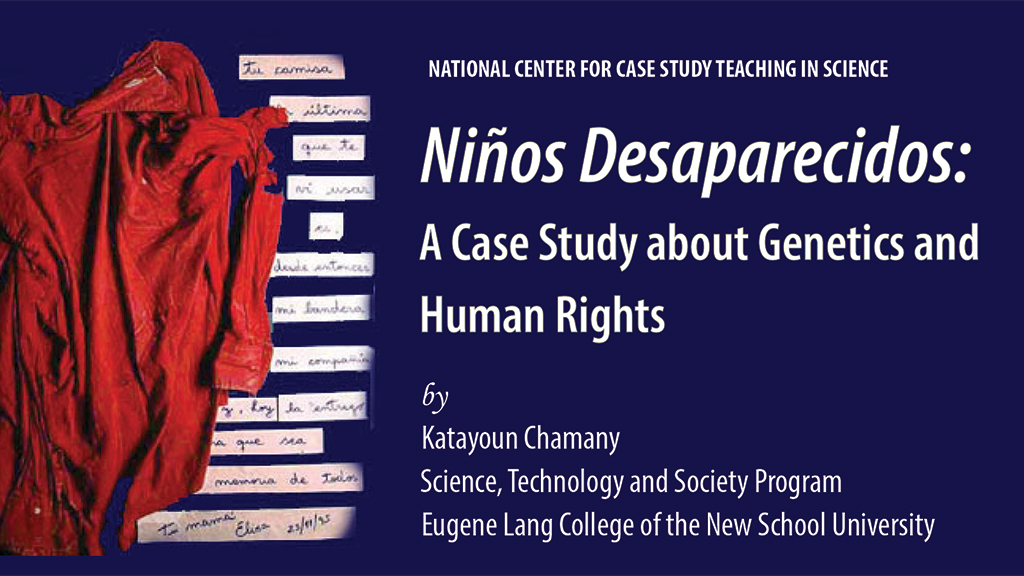Abstract
This case study is based on the identification of 50 children who were displaced during Argentina’s Dirty War of the 1970s, subjected to DNA and protein analysis, and subsequently reunited with their biological families. The case demonstrates the relationship between society and science and the influences that each has on the other. In addition, the case serves to address the issues of genes in populations, ethnic diversity, statistical significance, bias in interpretation, and gene databanks. Students will learn that the identification of individuals using molecular markers can be a useful tool in certain situations but that each type of analysis has its limitations. The teaching notes outline two different ways the case can be taught, i.e., as either an interrupted case or according to a role-playing format. This case was used in a cell and molecular biology lab course for majors, and in a first year seminar for non-majors. The case can be adapted for courses in politics, history, and identity, as well as more advanced courses in genomics.



